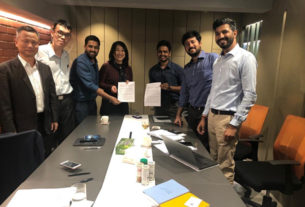Following the news that Hyundai Motor Company has signed a MoU with South Korea’s Ministry of Trade, Industry and Energy as well as Hyundai Glovis, LG Energy Solution and KST Mobility to foster EV ecosystem and sustainable battery reuse, Bakar Sadik Agwan, Senior Automotive Consulting Analyst at GlobalData, a leading research and consulting company, offers his view:

“The MoU has potential to support the EV growth in South Korea and will be a use case for OEMs across the world. The cost of acquisition along with the availability of charging infrastructure and concerns related to battery-life are key factors that affect the large-scale uptake of electric vehicles. OEMs across the globe have been exploring opportunities to increase the uptake of electric vehicles through innovative business models, battery-as-a-service being one of them.
“An EV sans battery reduces vehicle upfront cost by 30-40% and battery can separately be rented out or leased, dividing the cost of owning and maintaining over a vehicle’s lifetime. As per GlobalData estimates, a customer can lease an EV battery for over 8 years at a price that is equivalent to the purchase cost of an EV battery. Leasing is a better option for customers, who do not clock high numbers of kilometers every year.
“Renting or leasing out batteries offers additional benefits such as timely inspection of battery residual values by service providers, free/warranted replacements and assistance by service providers in events of breakdown. Shared mobility, logistics and delivery companies with large fleets will gain significant cost-benefits with the renting / leasing model covering repair, service and replacement of batteries.
“Some OEMs and governments in key markets such as China and Europe already have an active battery renting or leasing business model. However, it has not reached the required rate of commercialization globally. Hyundai’s implementation of the EV ecosystem with batteries being rented or leased out can be a good example for other OEMs, government and stakeholders such as energy companies and mobility players across various countries to replicate the model to boost the uptake of electric vehicles.”





